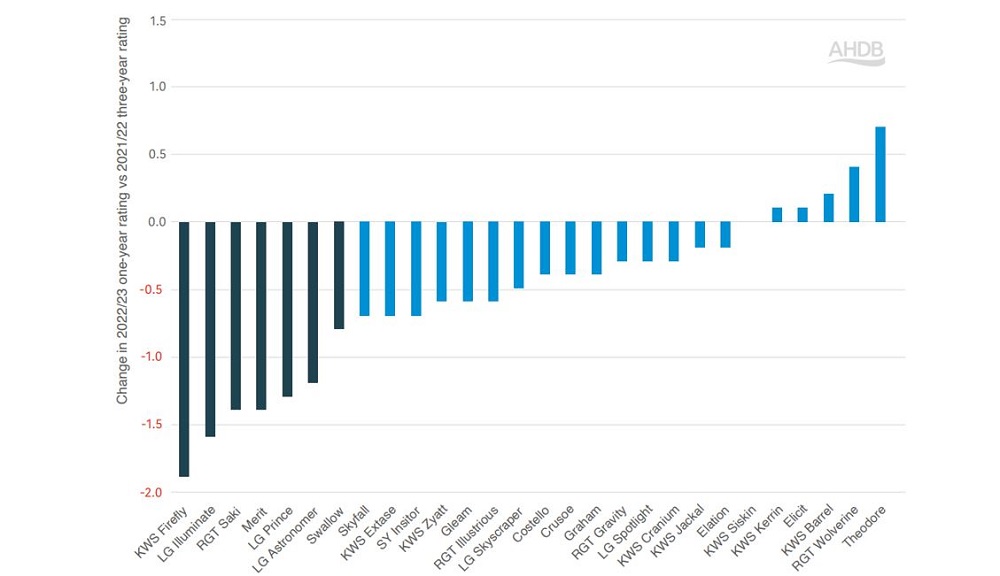Septoria: ‘Cougar’ effect in RL winter wheat trials
Wednesday, 15 June 2022
The Recommended Lists (RL) currently features winter wheat septoria tritici disease resistance ratings based on one-year and three-year data sets. Recent crop inspections suggest that the smaller data set may better reflect recent changes in the UK pathogen population.
The ‘Cougar’ effect
Following high levels of septoria tritici in the 2020/21 growing season and concerns about the breaking of resistance, AHDB released the current disease ratings early.
The RL 2022/23 also features disease ratings based on the standard three-year (2019–21) data set, in addition to a one-year (2021) data set.
The latter set helps to reveal the influence of the 2020/21 season, which had a relatively large impact on varieties with Cougar in their parentages (Figure 1).
 AHDB
AHDB
Figure 1. How septoria tritici disease resistance ratings changed in the RL 2022/23 (2021 one-year data set), relative to RL 2021/22 (2017–20 three-year data set). The dark blue bars indicate known Cougar descendants. New varieties are not included. Variety parentages can be found at ahdb.org.uk/rl
2022 crop inspections
Mark Bollebakker, a senior field trials manager at AHDB, recently inspected an early sown winter wheat trial site in North Yorkshire (Croft-on-Tees), where varieties were drilled on 18 September 2021.
From a septoria tritici perspective, the early sown trial series is interesting, as plants are exposed to disease ascospores for longer. Consequently, they tend to have relatively high levels of disease, especially early in the season.
Recently, conditions have been warmer and wetter. This has favoured the build-up of septoria tritici and this has provided an opportunity to glean an early insight into the performance of varieties.
When the fungicide-untreated block was inspected, septoria symptoms were clearly present at high levels in some varieties, especially on the lower leaves.
Following an inspection of varieties with various levels of septoria symptoms, Mark concluded that the one-year ratings may better reflect the disease levels being observed in 2022.
Varieties with Cougar in their parentage remain impacted the most by recent changes in the septoria tritici pathogen population.
 AHDB
AHDB
Trial inspection video
Watch Mark inspect winter wheat crops
Topics:
Sectors:
Tags:


 AHDB.JPG)
